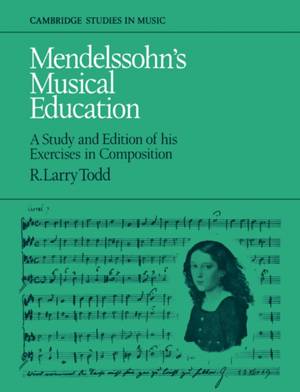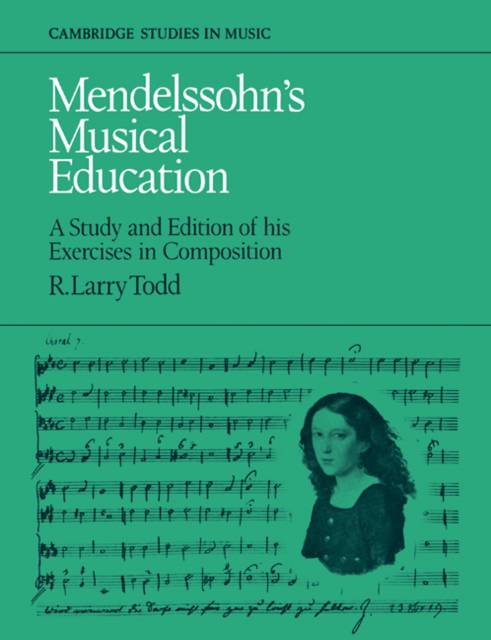
- Afhalen na 1 uur in een winkel met voorraad
- Gratis thuislevering in België vanaf € 30
- Ruim aanbod met 7 miljoen producten
- Afhalen na 1 uur in een winkel met voorraad
- Gratis thuislevering in België vanaf € 30
- Ruim aanbod met 7 miljoen producten
Zoeken
€ 61,95
+ 123 punten
Omschrijving
This book is a study and critical edition of Mendelssohn's composition exercise book from his early period of study with Carl Friedrich Zelter (1819-1821). The workbook illustrates in considerable detail the young musician's struggle to master the rules of part writing and principles of counterpoint. Much of Zelter's systematic teaching method is grounded in the eighteenth-century theoretical tradition of Berlin; not surprisingly, the exercises bear the stamp of the music of J. S. Bach, which heavily influenced such Berlin musicians as C. P. E. Bach, C. F. C. Fasch, Marpurg, Kirnberger, Zelter and Mendelssohn. There is little doubt that the historicist attitude of the mature Mendelssohn - as seen in his efforts to revive the works of Bach and Handel and in his propensity toward strict contrapuntal techniques in his own music - was conditioned by these studies with Zelter. The publication of the workbook sheds new light on the early development of one ofthe most important nineteenth-century composers who, though affected by the new wave of romanticism that swept over Europe, never lost his respect for the past. No less important, the manuscript includes several previously unpublished pieces which rank among Mendelssohn's earliest compositions.
Specificaties
Betrokkenen
- Auteur(s):
- Uitgeverij:
Inhoud
- Aantal bladzijden:
- 276
- Taal:
- Engels
- Reeks:
Eigenschappen
- Productcode (EAN):
- 9780521106337
- Verschijningsdatum:
- 2/04/2009
- Uitvoering:
- Paperback
- Formaat:
- Trade paperback (VS)
- Afmetingen:
- 189 mm x 246 mm
- Gewicht:
- 498 g

Alleen bij Standaard Boekhandel
+ 123 punten op je klantenkaart van Standaard Boekhandel
Beoordelingen
We publiceren alleen reviews die voldoen aan de voorwaarden voor reviews. Bekijk onze voorwaarden voor reviews.











